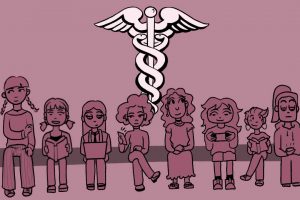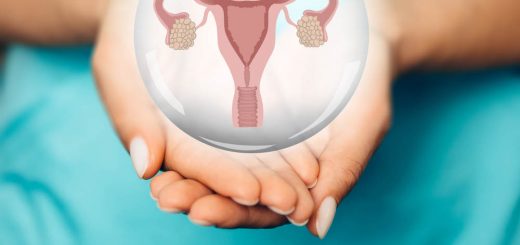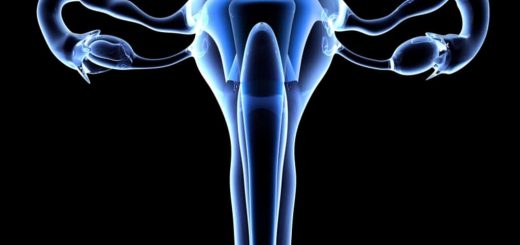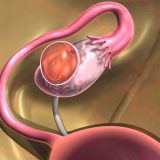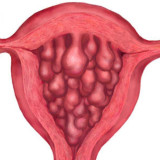In most cases, ovarian cyst remains completely unnoticeable for women for a long time. Often the diagnosis is made at a regular planned visit to a gynecologist. The patient doesn’t usually have complaints. Ovarian cyst symptoms appear later. And the danger is that it can be too late to save the organ.
Ovarian cyst symptoms depend on its size, location, and presence of complications
Pain
Pain begins to appear with the growth of the cyst due to the tumor compressing on surrounding tissues. Usually the pain is described as aching. It typically increases after exercise and by the end of day. The pain might refer to the abdomen, lower back, may reflect in the leg while driving.
Pain, as one of the ovarian cyst symptoms, does not depend on a day of the menstrual cycle. If pain worsens just before or during menstruation endometrial cyst of the ovary may be suspected. The connection with menstruation is typical for this type of ovarian disease.
In some cases, pain appears through sexual contact that can lead to relationship problems.
Adjacent organs disruption
Cyst of a significant size may disrupt the normal functioning of adjacent organs. A large cyst located near the rectum can cause constipation due to mechanical compression. When the tumor appears in front of the uterus it constantly irritates the bladder, causing frequent urination.
But not always, even with big ovarian cysts. An ovary moves fairly easily inside the abdomen. As it grows, it shifts to the most convenient (for it) place without affecting neighbour organs. The tumor can occupy the entire abdominal cavity from pelvis to liver without causing any ovarian cyst symptoms. The only probable noticeable sign will be an increased abdomen.
Irregular periods
Disrupted menstrual cycle is among common ovarian cyst symptoms. Usually this is because of hormonal disorders, which lead to the appearance of the cyst. Some women note late or missed menstruation, some mention it becomes more heavy, prolonged or painful. Often an ovarian cyst is detected when a woman goes to the doctor to consult about a failure in the normal menstrual cycle.
Infertility
Inability to conceive is another ovarian cyst symptom. Fortunately, it is not always the case. Problems with pregnancy can be associated with a cyst (endometrial cyst), with disruption of the normal anatomical structure (especially in larger tumors) or a hormone disorder.
Endometrioid cyst clearly remains the main cause of infertility. Pregnancy is almost impossible in its presence unlike other ovarian failures.
Conclusion
But it is worth emphasising that the mentioned above signs do not appear in all the cases. There are no specific or permanent ovarian cyst symptoms. And this makes it really difficult to diagnose the disease. This also leads to the delayed diagnosis, which ultimately may be detrimental for effective treatment. The longer the cyst is in the ovary, the large size it reaches, the greater the problems and complications it causes.
